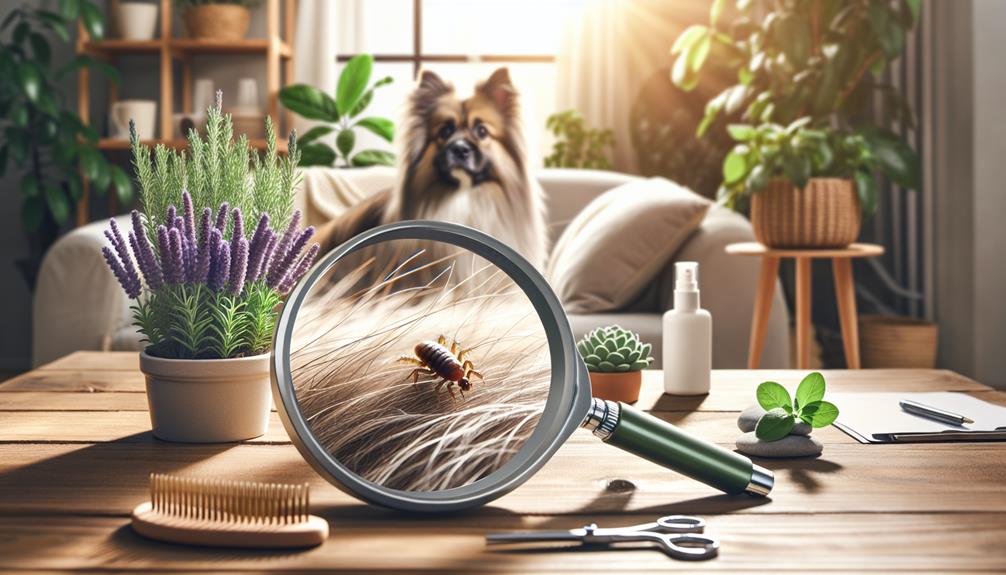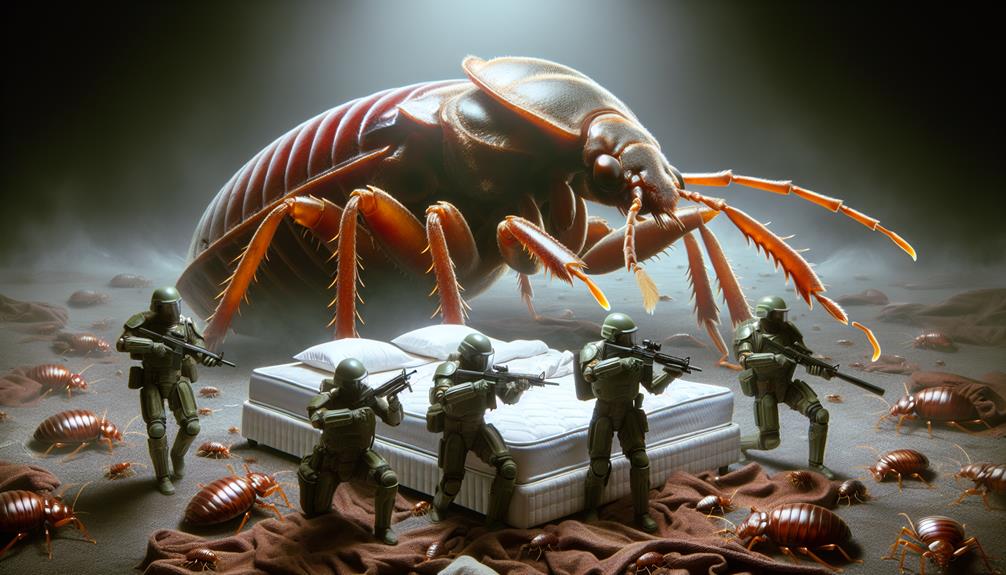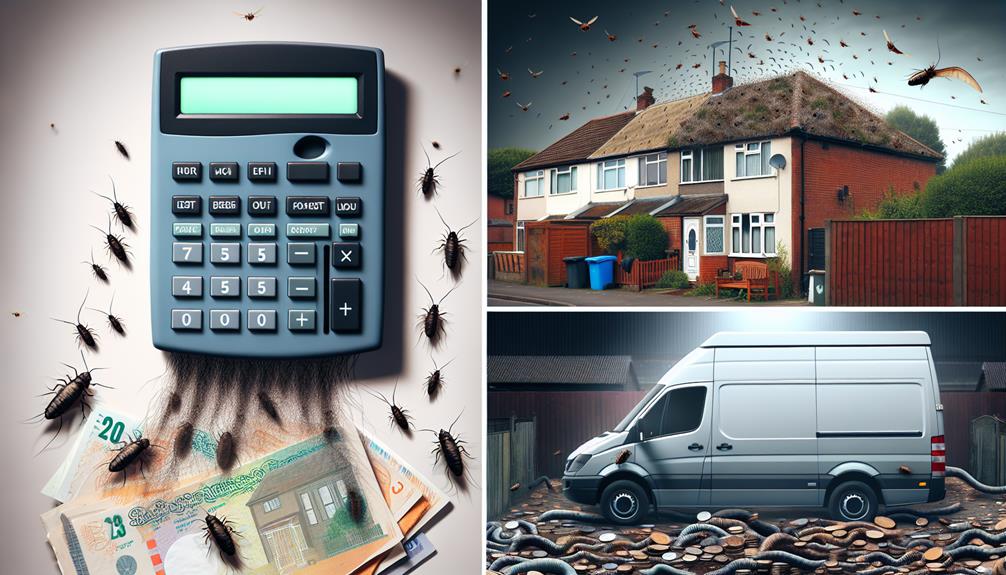In this guide
Are you aware of the hidden dangers that may be lurking in your home or business? While mice may seem harmless, these small rodents can actually pose a significant threat to your health and property. In this article, we will delve into some fascinating facts about mice infestations that you may not be aware of. From their behaviour and diet to the health risks they bring, we will provide you with the knowledge you need to protect yourself and create a safe, welcoming environment. Let’s uncover the truth about mice infestations together.
Key Takeaways
- House mice can breed early and produce a large number of droppings per day.
- Signs of mice infestation include gnaw marks, droppings, nests, and chewed wires or furniture.
- Natural deterrents and prevention methods include peppermint oil, mint plants, ultrasonic devices, and owning a cat.
- DIY solutions for small infestations include setting traps, keeping the premises clean, sealing entry points, and eliminating food sources.
General facts about the house mouse
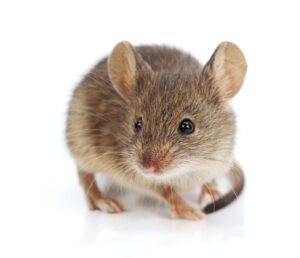
You should know that the house mouse, with its small size and distinctive characteristics such as its large eyes and prominent ears, is an omnivorous creature that can breed as early as 5 weeks of age and can produce up to 100 droppings per day. They are nocturnal creatures, active during the night, and have a lifespan of 12 to 18 months. Due to their adaptability to different environments, it is important to learn about methods of prevention and control. Now, let’s explore some mice infestation facts you may not know.
Mice infestation facts you may not know
Explore some lesser-known information about the presence of mice in your home or business.
- Mice prevention is crucial for keeping these pests at bay. Sealing openings and entry points can help deter them from entering.
- Look out for signs of infestation, such as gnaw marks, droppings, and a musty odour.
- Natural deterrents like peppermint oil and mothballs can help repel mice.
- DIY solutions like setting traps and keeping the premises clean can help control small infestations, but for larger ones, it’s best to seek professional extermination.
Now let’s delve into the fascinating world of mice behaviour, diet, and habitats.
Mice Behaviour, Diet and Habitats
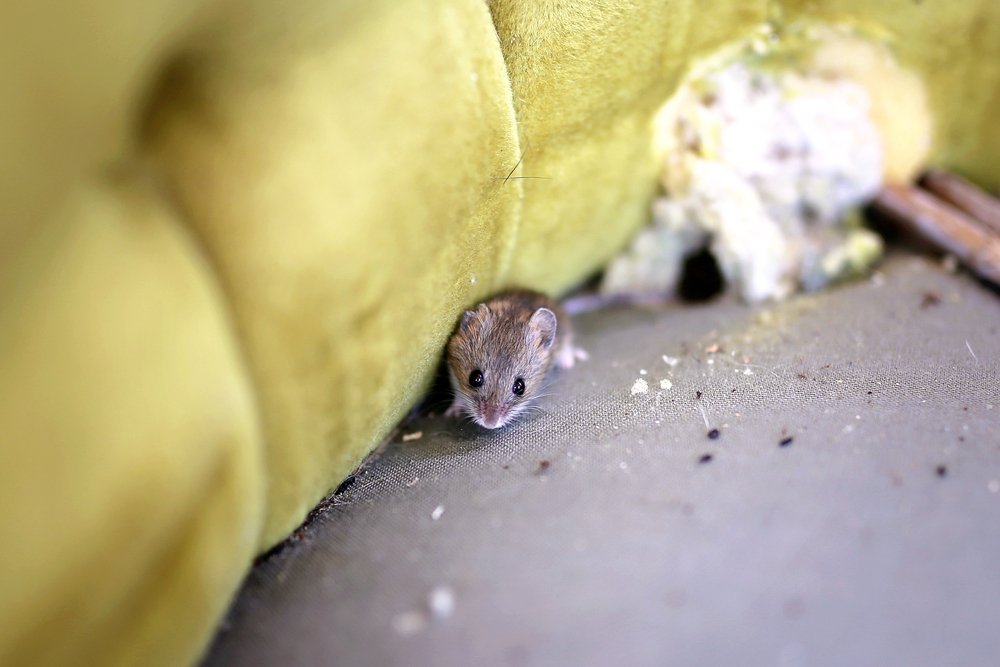
Mice are adaptable creatures that can be found in a variety of habitats. They communicate through high-pitched squeaks and pheromones. Mice create nests in spaces such as roof spaces, under floorboards, wall cavities and furniture. They are nocturnal animals and have specific breeding patterns. Mice rely on their communication methods to navigate and interact with each other in their surroundings. Now that you understand their behaviour, let’s explore what attracts mice and causes infestations.
What Attracts Mice And Causes Mice Infestations?
If you’re wondering what attracts mice and causes infestations, there are a few key factors to consider. First and foremost is food – mice are constantly on the lookout for a reliable food source, and your home can provide just that. Clutter and food particles left out can also be a major draw for these pests, as they offer both shelter and sustenance. Additionally, unkept lawns and fruitful gardens can attract mice, as they provide a natural habitat and a potential food source. Lastly, rubbish left unattended or improperly disposed of can also be a magnet for mice, as they are opportunistic scavengers.
Food
Aside from the warmth and shelter human homes provide, the house mouse is also attracted by all the foodstuffs we carelessly leave behind, such as unsealed pet food and bird seeds. When it comes to their diet, mice are not picky eaters. They will devour almost anything, from grains and fruits to meat and even chocolate. This poses a risk of food contamination and can lead to health issues. Proper food storage and eliminating food sources are essential to prevent mice infestations. Now, let’s move on to the next section about clutter and food particles.
Clutter and food particles
Now that you understand the importance of keeping food sources away from mice, let’s talk about another factor that attracts these pests: clutter and food particles. Mice not only seek out food but also a safe and quiet place to build their nests. Piles of clutter provide the perfect hiding spots for them. To prevent infestations, it’s crucial to keep your living spaces clean and organized. In the next section, we will discuss the impact of unkept lawns and fruitful gardens on mouse infestations.
Unkept lawns and fruitful gardens
Neglecting lawns and gardens can attract mice and lead to potential infestations. To protect your outdoor space from these pests, consider implementing the following pest control measures:
- Regular lawn maintenance, such as mowing the grass and trimming overgrown areas.
- Protect your garden by promptly harvesting ripe produce and removing rotting vegetation.
- Create a barrier by clearing clutter, including piles of leaves and tall grass.
- Take proactive steps for rodent prevention, such as setting up traps or using natural deterrents.
Maintaining outdoor cleanliness is crucial in preventing mice infestations. Now, let’s discuss how rubbish can contribute to the problem.
Rubbish
One way to prevent the attraction of mice is by properly disposing of rubbish. Mice are not picky eaters and will gladly feast on the scraps you throw away. Implementing sanitation measures and efficient waste management can help keep mice away from your property. Consider using mouse-proof bins and regularly emptying them to eliminate potential food sources. By practising rodent control and taking these preventive steps, you can minimize the risk of a mouse infestation. Now, let’s explore whether mice are dangerous.
Are mice dangerous?
If you have a mice infestation, you should be aware that they can pose various dangers to your health and property. Mice are known for causing property damage by chewing on electrical wires, wood, and expensive furniture. They also contaminate food supplies with their urine and droppings, spreading diseases. In addition, mice can bring other pest species like mites, fleas, ticks, and lice into your home. Understanding these dangers is crucial for effective mice infestation control. Now, let’s discuss the health risks associated with mice infestations.
Mice infestation health risks
Having a mice infestation can pose significant health risks to individuals and their households. It is important to be aware of the potential diseases transmitted by mice. Some common diseases include Lyme disease, salmonella, and leptospirosis. To prevent a mouse infestation, it is crucial to be familiar with the signs of a mouse infestation and common mouse entry points. Effective mouse control methods should be implemented to ensure the safety and well-being of your household.
Frequently Asked Questions
How do mice reproduce and how quickly can their population grow?
Mice’ breeding habits contribute to their rapid population growth. Female mice can produce up to 10 litters per year, with each litter consisting of 5-12 pups. Factors like food availability and favourable conditions influence their reproduction. Mice have a short gestation period of about 19-21 days. Effective population management is crucial for controlling mice infestation.
Can mice cause structural damage to homes or buildings?
Yes, mice can cause structural damage to homes and buildings. Their constant gnawing on wires, insulation, and wooden structures weakens the integrity of the property. Effective rodent control and regular home maintenance are key to preventing such damage.
What are some signs of a mice infestation that homeowners should look out for?
Signs of a mice infestation that homeowners should look out for include droppings gnaw marks, chewed wires, and a musky odor. Take action immediately to prevent further damage and health risks.
How can I prevent mice from entering my home or business?
To prevent mice from entering your home or business, there are several effective mouse prevention methods you can use. Keep mice out by sealing any entry points, using mouse-proofing tips, and deterring mice with strong scents or ultrasonic devices.
Are there any natural remedies or deterrents that can help control a mouse infestation?
Yes, there are natural remedies and deterrents that can help control a mouse infestation. Some effective solutions include using peppermint oil, keeping a clean environment, sealing entry points, and using ultrasonic devices. These eco-friendly options are non-toxic and safe for your home or business.
Conclusion
In conclusion, it is crucial for you to take immediate action against mice infestations. These small rodents not only bring a nuisance but also pose significant health risks. They contaminate food and surfaces, spreading diseases like salmonella. Moreover, their destructive gnawing can cause property damage and even compromise the structural integrity of your home or business. By understanding the behaviour, diet, and habitats of mice, you can effectively prevent infestations. Don’t wait, safeguard your health and protect your assets from these cunning creatures. Act now!
You may also enjoy reading this article
Was This Article Helpful?
- Please provide feedback and comments to help us improve our content.
- Share your experiences and any additional tips you have for dealing with pests.
Share this Post

